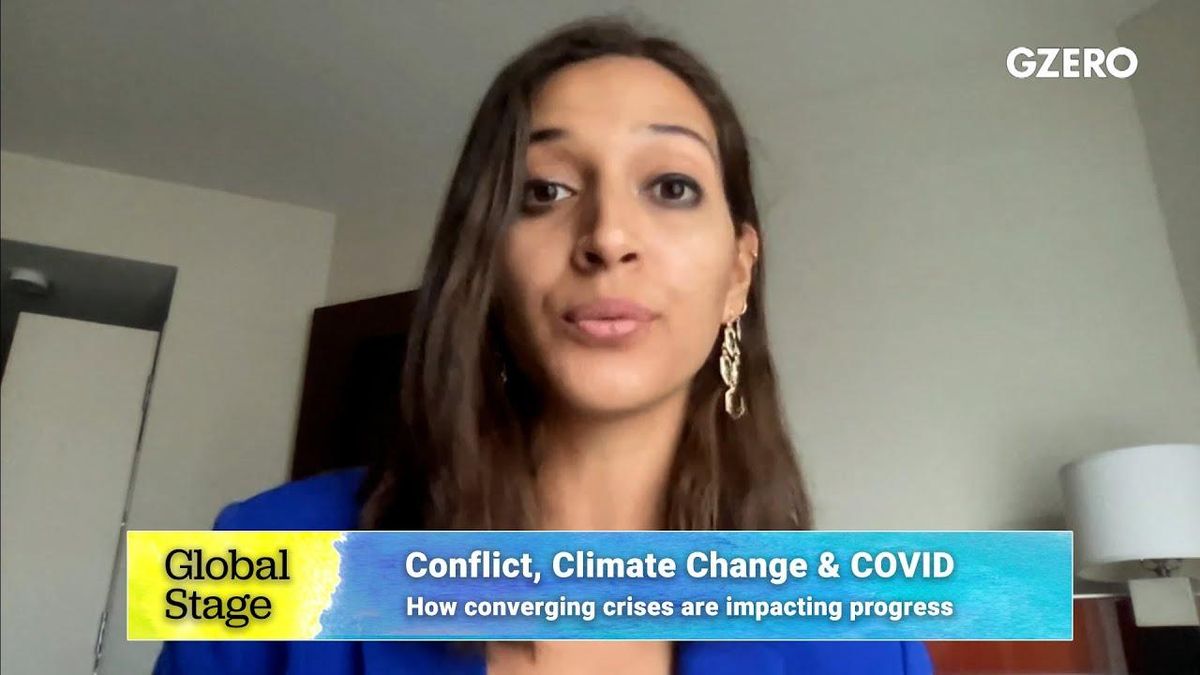Across especially the developing world, young people have been disproportionately affected by the impacts of climate change.
Yet they still lack a place at the policymaking table.How can we fix this? Dr. Omnia El Omrani, Youth Envoy for COP27 and SDG Champion, offers some thoughts in a Global Stage livestream conversation hosted by GZERO in partnership with Microsoft.
"We need to create a space that is meaningful, that is consistent, that is sustainable, for our needs and our demand, and for us to really shape the future that does not kill our dreams, she says.
"Because we right now are running out of time."Young people, El Omrani adds, have the solutions, the persistence, and most importantly the hope to stop being victims and become agents of change in the global fight against climate change.
Watch the full Global Stage livestream conversation "The Road to 2030: Getting Global Goals Back on Track" .
- We can't fix climate change without protecting biodiversity, says UNFCCC official ›
- Panel: How can we get to "net zero" to fight climate change? ›
- Focus on Africa: hunger, energy, climate - and the path to growth ›
- UN Global Advocate Eddie Ndopu: Changing how the world thinks about disability - GZERO Media ›
- Youth activists: How to save our future from the crises we create - GZERO Media ›

















